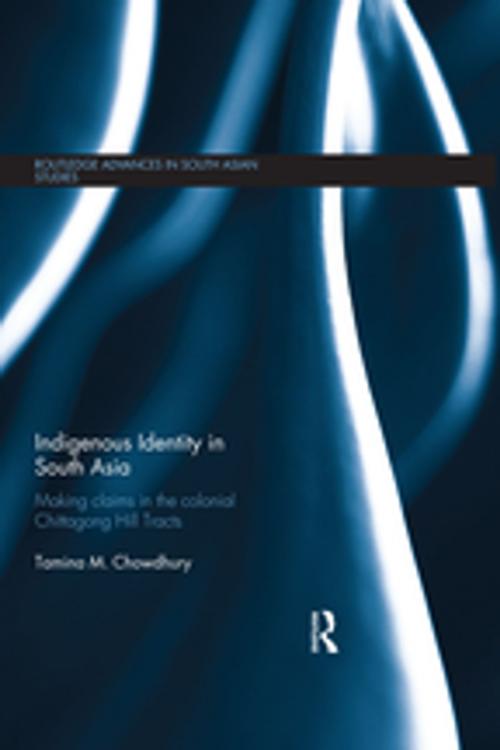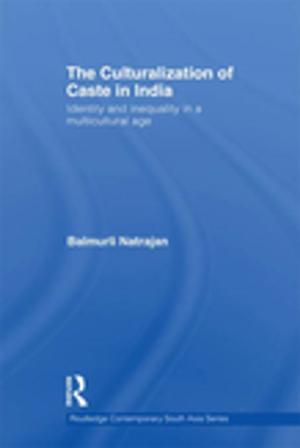Indigenous Identity in South Asia
Making Claims in the Colonial Chittagong Hill Tracts
Nonfiction, History, Asian, India, Social & Cultural Studies, Social Science, Cultural Studies, Ethnic Studies| Author: | Tamina M. Chowdhury | ISBN: | 9781317202929 |
| Publisher: | Taylor and Francis | Publication: | November 10, 2016 |
| Imprint: | Routledge | Language: | English |
| Author: | Tamina M. Chowdhury |
| ISBN: | 9781317202929 |
| Publisher: | Taylor and Francis |
| Publication: | November 10, 2016 |
| Imprint: | Routledge |
| Language: | English |
In the immediate aftermath of the creation of Bangladesh in 1971, an armed struggle ensued in its remote south-eastern corner. The hill people in the Chittagong Hill Tracts, more commonly referred to as paharis, demanded official recognition, and autonomy, as the indigenous people of the Tracts. This demand for autonomy was primarily based on the claim that they were ethnically distinct from the majority ‘Bengali’ population of Bangladesh, and thereby needed to protect their unique identity.
This book challenges the general perception within existing scholarship that indigenous claims coming from the Tracts are a recent and contemporary phenomenon, which emerged with the founding of the Bangladesh state. By analysing the processes of colonisation in the Chittagong Hill Tracts, the author argues that identities of distinct ethnicity and tradition predate the creation of Bangladesh, and first began to evolve under British patronage. It is asserted that claims to indigeneity must be understood as an outcome of prolonged and complex processes of interaction between hill peoples – largely the Hill Tracts elites – and the Raj.
Using hitherto unexplored archival sources, Indigenous Identity in South Asia sheds new light on how the concepts of ‘territory’, and of a ‘people indigenous to it’ came to be forged and politicised. By showing a far deeper historical lineage of claims making in the Tracts, it adds a new dimension to existing studies on Bangladesh’s borders and its history. The book will also be a key resource for scholars of South Asian history and politics, colonial history and those studying indigenous identity.
In the immediate aftermath of the creation of Bangladesh in 1971, an armed struggle ensued in its remote south-eastern corner. The hill people in the Chittagong Hill Tracts, more commonly referred to as paharis, demanded official recognition, and autonomy, as the indigenous people of the Tracts. This demand for autonomy was primarily based on the claim that they were ethnically distinct from the majority ‘Bengali’ population of Bangladesh, and thereby needed to protect their unique identity.
This book challenges the general perception within existing scholarship that indigenous claims coming from the Tracts are a recent and contemporary phenomenon, which emerged with the founding of the Bangladesh state. By analysing the processes of colonisation in the Chittagong Hill Tracts, the author argues that identities of distinct ethnicity and tradition predate the creation of Bangladesh, and first began to evolve under British patronage. It is asserted that claims to indigeneity must be understood as an outcome of prolonged and complex processes of interaction between hill peoples – largely the Hill Tracts elites – and the Raj.
Using hitherto unexplored archival sources, Indigenous Identity in South Asia sheds new light on how the concepts of ‘territory’, and of a ‘people indigenous to it’ came to be forged and politicised. By showing a far deeper historical lineage of claims making in the Tracts, it adds a new dimension to existing studies on Bangladesh’s borders and its history. The book will also be a key resource for scholars of South Asian history and politics, colonial history and those studying indigenous identity.















